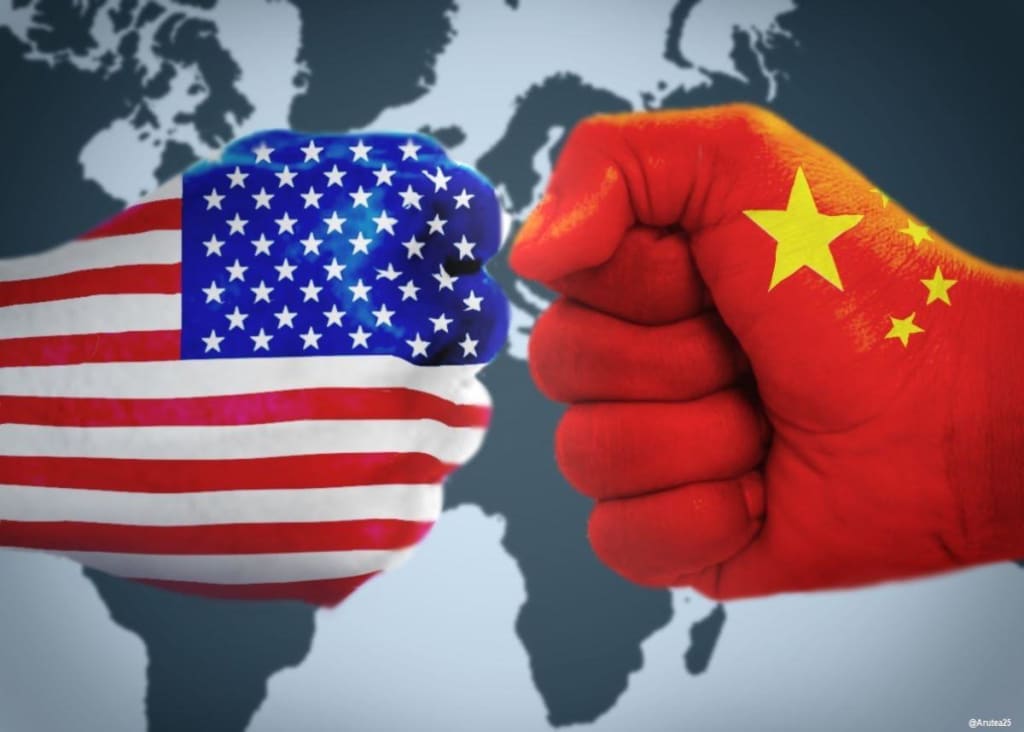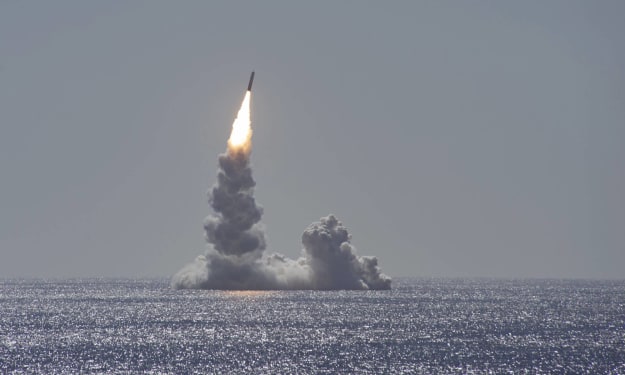The Looming US-China Conflict: The Battle for Taiwan and the Future World Order 🇨🇳 🇺🇸 🪖
The US- China Conflict

The world is on the brink of witnessing a monumental clash of superpowers. For the second time in its history, the United States finds itself facing a potential military conflict with China. While the Korean War of the 1950s saw a limited confrontation, the impending showdown is of an entirely different magnitude, with global implications that could redefine the 21st century. At the heart of this impending struggle lies the fate of Taiwan, an island nation of immense strategic importance. The contest between the US and China is not merely a military skirmish but a clash of two vastly different worldviews. The United States, despite its imperfections, represents a dominant global power with a commitment to a liberal world order. In contrast, China's survival is tied to dismantling this global system, which poses an existential threat to the Chinese Communist Party's control. The pivotal piece of this puzzle is Taiwan, a thriving democracy located just off the coast of mainland China. Taiwan's significance extends beyond its political identity. Dubbed the "silicon shield," Taiwan has established itself as a global leader in semiconductor production. Historically, the US Navy's supremacy allowed the United States to operate its carrier strike groups near Chinese shores with ease, but China's military expansion has shifted the balance. This endangers Taiwan and, consequently, the world's primary source of advanced computer chips. China's control of Taiwan's semiconductor production would provide it with immense leverage. It could use this power to coerce and blackmail other nations, including the United States. The global shortage of computer chips during the COVID-19 crisis provided a glimpse into the potential consequences of such control. Taiwan's strategic importance extends to its role in the "first island chain," a series of islands stretching from Japan to the Philippines, historically acting as a barrier against communist powers, including the Soviet Union and China. The US Navy has upheld global trade security by maintaining control over these waters. If China were to break this chain, it could fundamentally shift global power dynamics and influence critical trade routes, such as the Malacca Straits.In this high-stakes contest, China appears to have all the advantages. It stands poised to pursue a military confrontation to secure its objectives in Taiwan. However, there is another path, a diplomatic one, which China has yet to fully explore. China could leverage its colossal economy as a diplomatic weapon to attain its goals. China has made efforts in this direction, strengthening its ties with Southeast Asian nations, such as South Korea. While South Korea has a defense treaty with the United States, economic pressure from China could lead to reconsideration, raising questions about the strength of long-standing alliances. China's attempts at a charm offensive have been inconsistent. It briefly appeared successful in courting countries like Australia. However, revelations of China's covert influence within Australian political and educational institutions led to strained relations and a trade war. One significant misstep for China was its approach toward the Philippines. During the presidency of Rodrigo Duterte, China courted the nation effectively. Duterte's authoritarian tendencies seemed aligned with China's anti-democracy stance. The US-Philippine defense alliance appeared to be in jeopardy. However, the situation changed with the election of Ferdinand "Bongbong" Marcos Jr., the son of the notorious Filipino dictator Ferdinand Marcos Sr. The younger Marcos emerged as a staunch US ally, viewing China as a significant threat. This political shift favored the US and presented a serious challenge to China's plans. The Philippines holds a critical position for the United States in the Pacific. Overcoming the "tyranny of distance" is the primary concern for the US in the Pacific. The Philippines, located less than 200 miles from Taiwan at its nearest points, allows the US to deploy air power, stage combat sorties against Chinese forces in the region, and even strike the Chinese mainland if necessary.China's own actions have led to closer ties between the US and the Philippines. The Philippines' president, Bongbong Marcos, opened military bases to US forces, further strengthening the alliance and granting the US strategic access in the region. In an attempt to consolidate territorial claims in the South China Sea, China has employed aggressive tactics, including claiming vast swathes of international waters. This behavior has strained relationships with neighboring countries and resulted in international disputes, putting regional stability at risk. The looming conflict between the United States and China over Taiwan is not just a military confrontation; it is an ideological clash with global consequences. Taiwan's significance is multi-faceted, from its role as a "silicon shield" to its place in the "first island chain." China has both military and diplomatic options to pursue its goals, but its overreach in the South China Sea and missed opportunities have inadvertently strengthened the US-Philippine alliance. While the path ahead remains uncertain, it is clear that the fate of Taiwan and the larger global order hang in the balance. The outcome of this struggle will not only redefine the 21st century but also determine whether the world remains on a path toward a liberal world order or transitions into a more autocratic era. In the face of these challenges, one thing is certain: the world is watching with bated breath as this historic contest unfolds.
About the Creator
Rakindu Perera
I’m a highly successful content writer with articles recognised by huge varieties of organisations. Also being in completion of a Bachelors Degree in Mechanical Engineering, I have the upmost know when it comes to exteme applications.






Comments
There are no comments for this story
Be the first to respond and start the conversation.